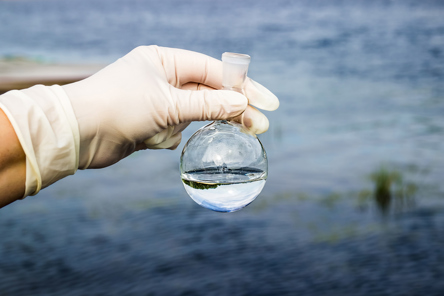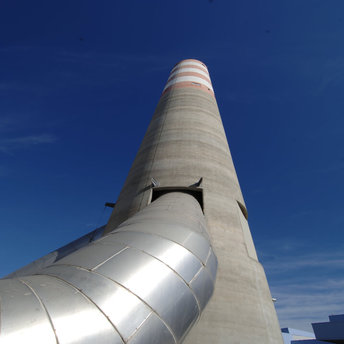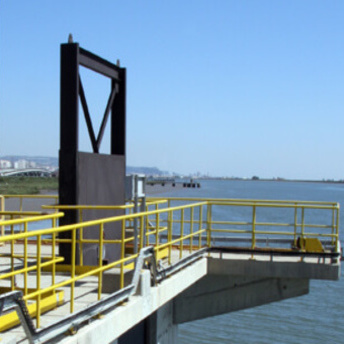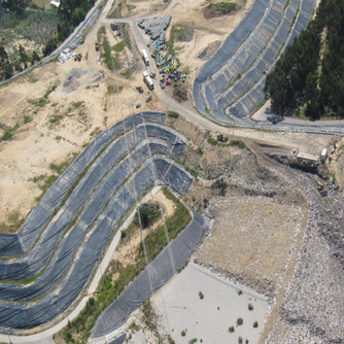

The municipal waste treatment facilities are industrial in nature and subject to integrated pollution prevention and control (IPPC), with strict legal obligations arising from the environmental licensing of the installations, as well as the sectoral legislation in force.
ENVIRONMENTAL CONTROL
Below we list some of the major concerns manifested by communities in the intervention areas, as well as mitigation and mitigation measures
1. Monitoring of the units in the exploration phase and after sealing / closing
2. Leachate control
3. Noise control
After ensuring compliance with the maximum exposure criterion and the discomfort criterion, new monitoring is carried out whenever necessary, in particular in the following cases:
4. Odor and dust control
Therefore, there are several measures to control this drawback:
Another possible drawback of urban waste treatment is dust, which appears when there is no precipitation - when this happens, the access to the work front is provided with the necessary frequency, in order to avoid the formation of dust clouds in the passage of discharge vehicles.
ANNUAL IMPLEMENTED MONITORING CAMPAIGN
In order to respond to the legal obligations and to the effective environmental control of the units, a monitoring program is carried out annually, which includes all the impacts described above and others.

 Monitoring of the Energy Recovery Center
Monitoring of the Energy Recovery Center
This concern and necessity exist because we carry out an activity that may raise doubts on the part of the residents in the surroundings of the Central, so we have been concerned with implementing monitoring programs that allow the knowledge of several parameters, evaluating the environmental effects of a functioning plant .
This is of greater importance if we consider that the area where the Center is located is an area where the industry is present in a very particular way.
The monitoring programs, which have been carried out continuously since one year before the start-up of the plant, are as follows:
- Air Quality (in continuous) - Valorsul, S.A .;
- Air Quality (in batch) - Institute of Environment and Development of the University of Aveiro;
- Ambient Noise - CAPS-IST; dBLab: Acústica e Vibrações, Lda .; ASA - Ailton Santos e Associados, Lda .;
- Quality of Waters and Sediments - Hydrographic Institute of the Navy;
- Terrestrial and Estuarine Ecosystems - Faculty of Sciences of the University of Lisbon;
- Public Health Surveillance - Institute of Preventive Medicine, Faculty of Medicine of Lisbon;
- Psychosocial monitoring - Qmetrics, lda.
These studies, with the exception of Air Quality (continuous), are being carried out by independent entities of recognized merit, which guarantee the independence and reliability of the results
For more information, click here.
 Treatment and Monitoring of Water Quality
Treatment and Monitoring of Water Quality
The water resulting from the decomposition of the waste deposited in the landfills operated by the EGF goes through a rigid and efficient system of Treatment of Leaching Water, guaranteeing a strict environmental protection system.
In some units, such as in Algar, the treated water is still used inside the business itself, as in the washing of vehicles and floors of the unit.
Still, Valorsu's work with the Hydrographic Institute to monitor the quality of water and sediment should be highlighted.
In this case, the monitoring involves several aspects, from the evaluation of the impact of the Cooling Water Circuit (CAR) to the quality of the water and the sediments.
 Annual Environmental Report
Annual Environmental Report
EGF companies, as operators of the respective Landfills, are obliged to send and annually send to the Portuguese Environmental Agency (APA) an Annual Environmental Report (RAA).
The main objective of the Report is to present the elements demonstrating compliance with the requirements of the Environmental License. The monitoring of these requirements and the control of these elements ensure that EGF and its companies ensure that the operation complies with environmental standards and, therefore, follow practices that do not degrade the environment.